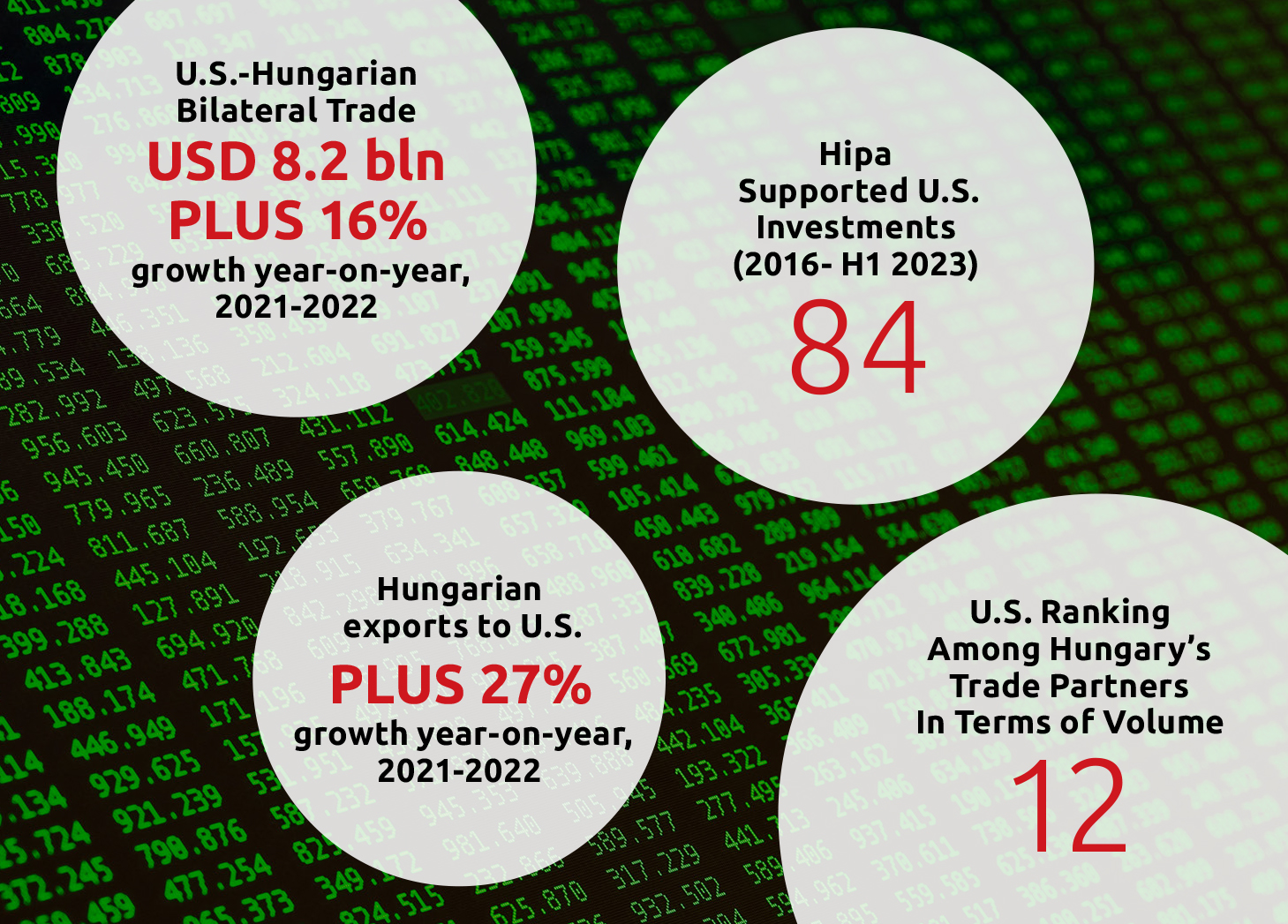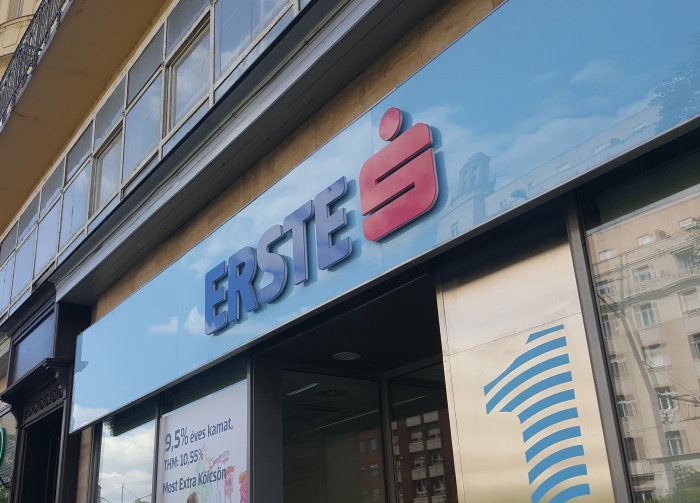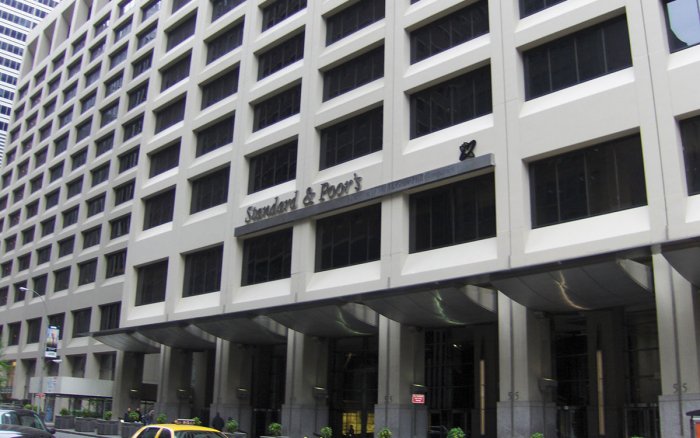U.S. Firms Deem Hungary as Strategic Location to Support Global Operations

Photo by esfera / Shutterstock.com
American businesses are increasingly considering Hungary as a flagship venue to provide support to their global operations through business service centers. Insights from the Hungarian Investment Promotion Agency reveal more about the trend.
Many people don’t know that top-ranking Fortune 500 company ExxonMobil runs a massive business service center in Hungary that has grown to become its largest office in Europe over almost 20 years. As Byung Kim, ExxonMobil Hungary’s lead country manager, explains, the growth is not only about numbers but also the quality and complexity of operations.
“We support the business in areas such as sales, marketing, logistics, digital and cyber, collaborating with our colleagues in the Americas and Asia Pacific regions in addition to supporting our local European operations,” he says.
He adds that critical to its success has been its investment in people. Accordingly, last year the American giant launched an ambitious digital innovation program with the help of Hipa to improve the digital skills of its employees and facilitate the strengthening of innovative corporate culture.
“We prioritize long-term rewarding career and professional development with a breadth of upskilling opportunities, leveraging numerous training programs in leadership, technical and digital competencies,” Kim notes. “We have seen an increasing trend in the high value-added positions, and we are also upskilling and preparing our employees for the future.”
ExxonMobil is far from the only American company that relies on Hungary-based talent for business services centers. Between 2016 and the first half of 2023, Hipa guided 25 BSC-related projects of U.S. firms that should create nearly 5,100 jobs. ExxonMobil Hungary alone committed to hiring 200 employees when it moved into a new state-of-the-art office complex in Budapest last summer.

American Significance
The significance of American investors in general is hard to overemphasize. They form the third-largest investor community in Hungary, accounting for 7.5% of total FDI. According to the latest data from the Hungarian Central Statistical Office, more than 1,300 American-owned businesses employ 88,000-plus people in Hungary. And although political relations between the two countries have been better, business is booming, with bilateral trade hitting a record last year.
Apart from BSCs, U.S.-based investors have made the headlines on many occasions in the recent past. To name but a few examples, leading auto parts manufacturer Dana announced it would add new capacities worth EUR 96 million at its sites in Győr to meet EV-induced demand, while global MedTech giant Becton Dickinson is to invest EUR 188 mln in its syringe production in Tatabánya. Coca-Cola is extending its production lines at a cost of EUR 82 mln in Dunaharaszti. HTEC’s newly established IT hubs all over the country plans to create 610 jobs in 2022. That alone propelled the United States to fourth place in the job creation chart that year.
The uninterrupted investment in the BSC sector is all the more critical as HIPA is committed to shifting the focus from energy- and labor-intensive projects to knowledge-focused ones.
For a global oil company like ExxonMobil, investing in people is playing an ever-bigger role as this will be essential to delivering on the challenging opportunities ahead, particularly due to the energy transition.
“The perception about ExxonMobil has been that we need to choose to either meet the world’s evolving energy needs or play a leading role in the energy transition,” Kim says. “In reality, it is an ‘and’ equation, and we are well-positioned to both help provide the energy society needs and reduce greenhouse gas emissions to support a net-zero future.” The company plans to invest USD 17 bln globally in lower-emission initiatives through 2027.
E-fuel Opening
Now that electrification is leading the charge to reach net zero, stakeholders like ExxonMobil need to adapt quickly and efficiently to stay ahead of the competition.
The fact that EU legislators have left the door open for the use of so-called e-fuels (synthetic fuels generated by using decarbonized power sources, such as wind, solar or wave) gives more room for oil companies for development.
Now, demand for low-emission fuels is expected to increase, driven by the need for energy-dense, lower-carbon fuels for hard-to-decarbonize transportation sectors such as aviation, marine and heavy-duty trucking, Kim notes. And low-emission fuels have the high energy density required to meet commercial transportation needs while significantly reducing CO2 emissions.
“We are focused on growing our low-emission fuels business by leveraging current technology and infrastructure, in addition to continuing research for any potential additional solutions; there is no one solution to reach our climate goals, but a mix of technologies,” he adds.
Hipa CEO István Joó is confident that companies like ExxonMobil will continue to invest in the country despite the current economic challenges. Even during the pandemic, up to 21 U.S.-related investments were launched thanks to various competitiveness-improving subsidy schemes, he recalls.
“Investment promotion remains a priority in Hungary, while the country adapts to the current economic context. What you can take for granted is that Hungary will continue to provide the best possible environment for foreign investors, including American ones, so that they can find their way and make the maximum of their presence in our country. And Hipa is certainly more than happy to guide them every step of the way,” Joó concludes.
This article was first published in the Budapest Business Journal print issue of July 14, 2023.
SUPPORT THE BUDAPEST BUSINESS JOURNAL
Producing journalism that is worthy of the name is a costly business. For 27 years, the publishers, editors and reporters of the Budapest Business Journal have striven to bring you business news that works, information that you can trust, that is factual, accurate and presented without fear or favor.
Newspaper organizations across the globe have struggled to find a business model that allows them to continue to excel, without compromising their ability to perform. Most recently, some have experimented with the idea of involving their most important stakeholders, their readers.
We would like to offer that same opportunity to our readers. We would like to invite you to help us deliver the quality business journalism you require. Hit our Support the BBJ button and you can choose the how much and how often you send us your contributions.










